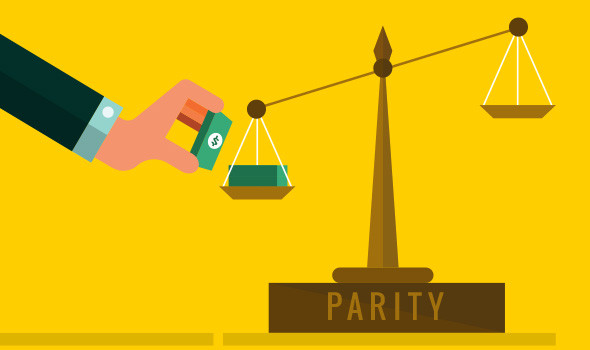It will be cost not kindness that ends animal agriculture – but when will we achieve vegan meat price parity?
As much as we care for animals, it’s likely that ‘price parity’ between plant-based and animal-derived meats will see the quickest changes made to our food system.
We love cheap food. When asked, we nearly always say we prefer to buy products that are ethical, sustainable, and healthy. But research shows time and again that what actually drives most of our food choices are cost, convenience, and taste.
Most of all, it’s the price.

Vegan meat price parity
That’s why the question of ‘price parity’ is a hot topic in plant-based food. With price, especially a cheap price, such a driving force in our food choices, the cost of plant-based meats really matters.
Right now, supermarket customers are paying almost 200 percent more for plant-based products in comparison to meat alternatives.
It’s also why the European dairy lobby is trying to stop plant-based products being sold in ‘dairy’ packaging. If plant-based providers have to use different packaging, this could make plant-based alternatives more difficult to produce and, critically, more expensive to buy.
But lessons from other industries (such as electric cars) show that as technology develops and demand increases, price parity will arrive. But for plant-based meat products, when will that be? Can it really bring an end to the slaughter-based meat products that are currently cheaper and purchased more often?
‘Cheap food paradigm’
We love cheap food. As the UK government’s Behavioral Insights Team wrote in their report ‘A Menu For Change’, price (alongside convenience and taste) is the most important factor for people when shopping. This includes for healthier alternatives.
This isn’t our fault. Supermarkets, advertising, and government policies have spent 70 years creating what food expert Professor Tim Lang calls our ‘cheap food paradigm’.
This is especially in the UK and US. Along with Singapore, these are the three cheapest food markets in the world. In the UK, we spend only 8 percent of our household budget on food. This is the cheapest in Western Europe. Greeks spend 16 percent, Peruvians 26 percent, and Nigerians 59 percent.
But when you learn that the UK also has the highest food poverty in Europe in terms of people being able to afford a healthy diet, you know something is wrong.
This cheap food paradigm emerged during World War 2. Farmers were asked to grow more food, quickly and cheaply. They were the heroes feeding a country at war, and rebuilding afterward.
Farmers were doing what they were asked. They began using heavy chemicals and pesticides. They abandoned rotation farming and replaced them with monocultures. Food got increasingly cheap. There were supermarket price wars (continuing today). We lost touch with the true cost of food.
But at what cost?
The true cost of cheap food is a ‘spiraling public health crisis and environmental destruction’ – according to the RSA’s Food, Farming and Countryside Commission.
Last month’s Chatham House/UN report drove home the point: “Cheap food is driving destruction of the natural world.” The constant demand for economic growth has ‘sustained vicious circles’ of agricultural efficiency, coupled with ‘increased economic competition through the liberalization of trade’.
Cheap foods also tend to be more processed. In the UK, we eat the most ultra-processed foods in Europe, nearly 50 percent of our diets. Compare this to around 11 percent in Italy or 16 percent in Portugal. This massively increases the incidence of Type-2 diabetes and other serious health epidemics.
A price transformation
It’s obvious we need a food transformation. And that includes the price we pay for it.
What we should do is ask those who can afford more to pay more, while supporting those currently in food poverty to be able to buy better. But that’s another article!
We also know that a whole-foods plant-based diet can be much cheaper than a heavily processed, animal-based diet.
Right now, most meat-eaters overestimate the price of plant-based meat products. And they’re not wholly wrong.
So if we want to see change happen quickly, we have to get people off the slaughter-based meats and into the plant-based aisles. The quickest way to do that is through pricing.
To read the complete article visit: plantbasednews.org/opinion/opinion-piece/vegan-meat-price-parity/
Source: https://plantbasednews.org/opinion/opinion-piece/vegan-meat-price-parity/
